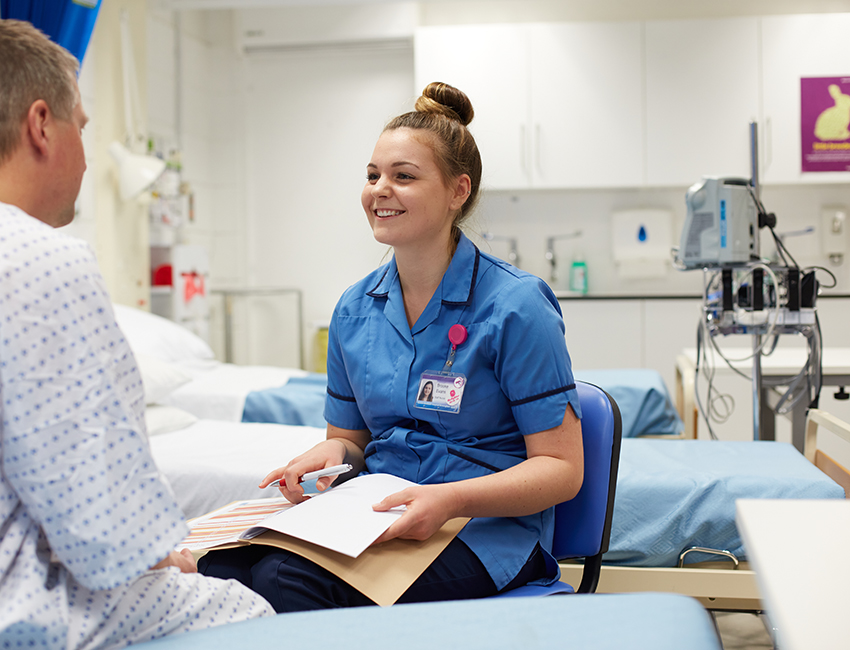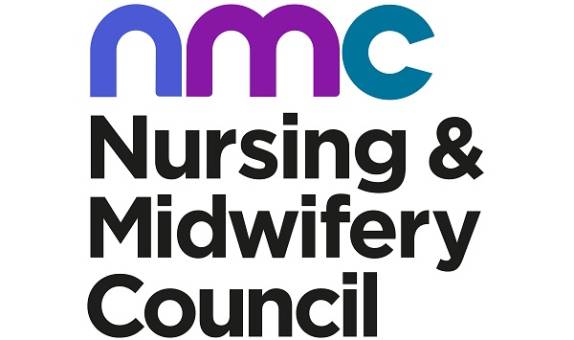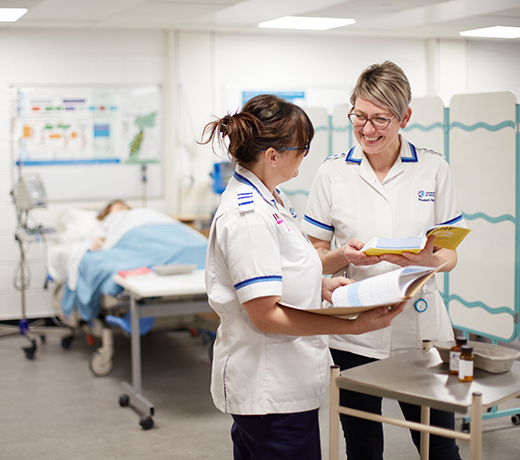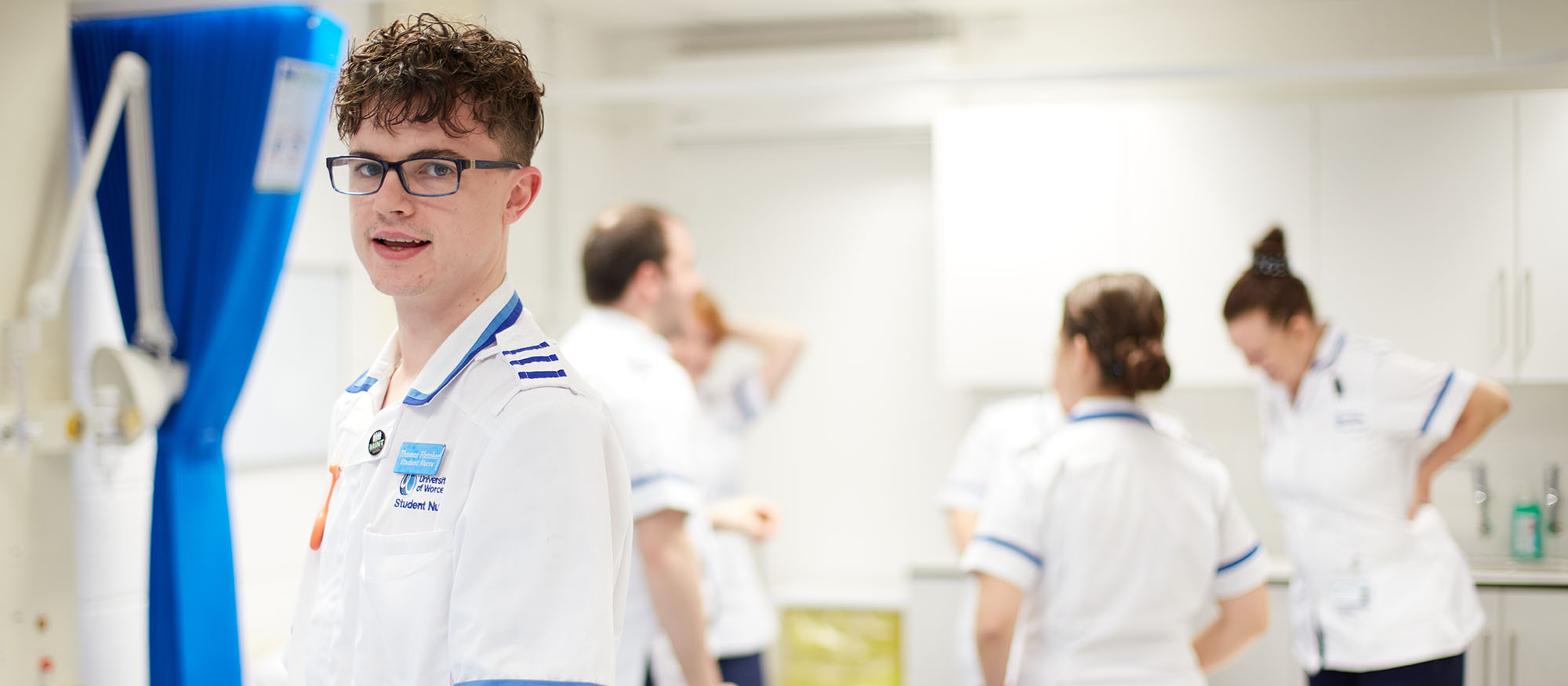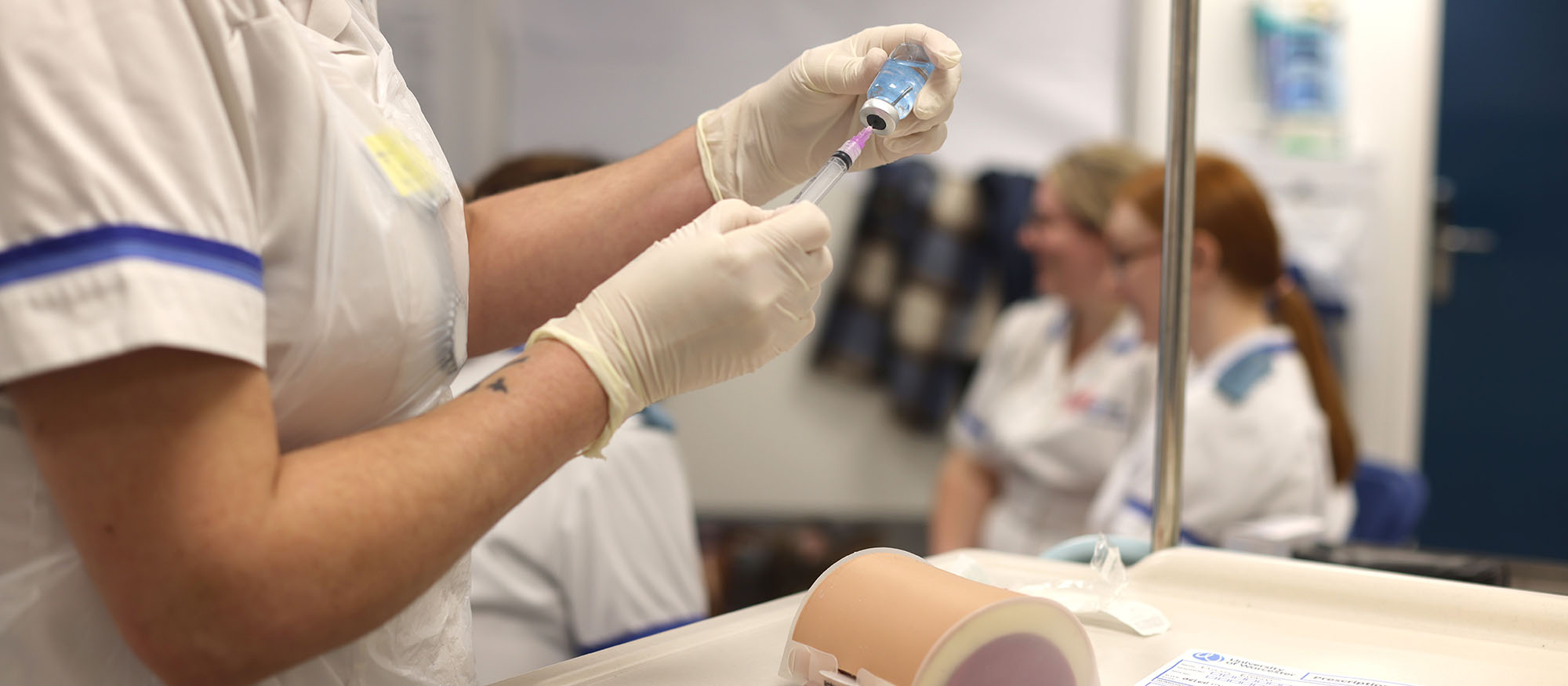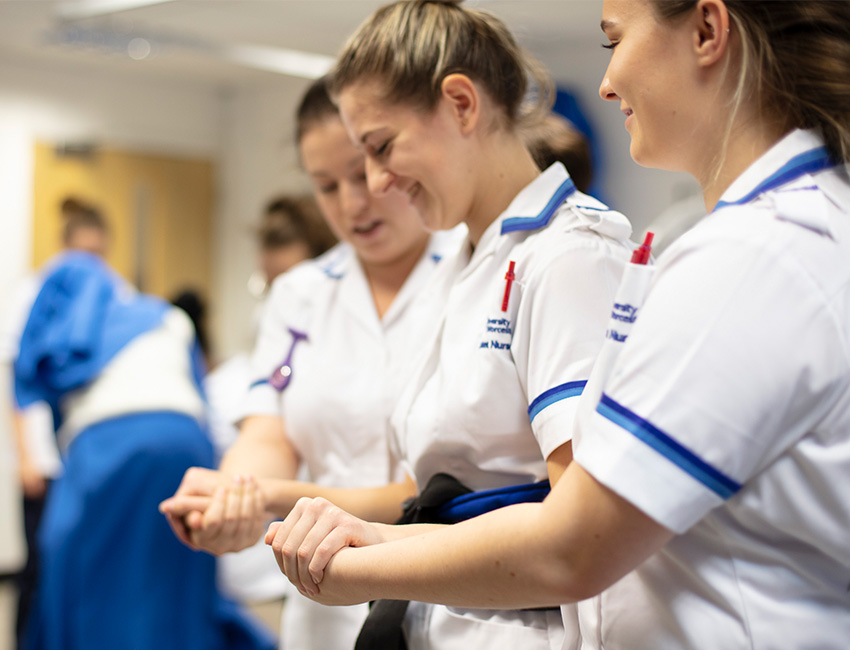Work with real patients from your first year with our extensive partnerships with NHS trusts throughout the midlands region. By the time you graduate, you’ll be a confident specialist mental health nurse eligible to register with the Nursing and Midwifery Council (NMC).
of graduates are in work or further study after 15 months
grant that you won't need to pay back
With this degree you’ll be eligible to register as a nurse with the NMC, the professional regulatory body for nurses.
First for jobs
The University of Worcester is first in the UK for sustained employment, further study or both, five years after graduation (excluding specialist institutions) - Longitudinal Educational Outcomes Survey 2024. Read more.
Overview
To fully prepare you for a career as a mental health nurse, you’ll learn about mental health conditions and how to care for patients of all ages. Your time will be split between learning in our first-class facilities and developing your skills on practice placements.
Learn the theory and put it into practice with hands-on skills and simulation days. These sessions take place in our simulation suites which replicate the clinical environment you’ll be working in when you graduate. By working through simulated case studies and clinical scenarios, you’ll have an authentic insight into the role of a mental health nurse and improve your confidence.
Be there for patients from your first year with practice placements, where you’ll be working with real people with complex mental, physical, and social needs. You’ll learn techniques to form relationships and build trust with your patients to help them overcome their challenges and make a difference in their lives.
Your lecturers will get to know you personally. Through tailored support and reflections, they get to understand your strengths and know how to push you to develop. When you start, you’ll be assigned a Personal Academic Tutor, usually this is one of the lecturers teaching your course and they typically remain with you throughout your studies.
Placements
We have excellent links with NHS Trusts and healthcare providers in Worcestershire, Herefordshire, Gloucestershire, Shropshire, Birmingham, and Dudley.
Around half of your time will be spent on practice placements in each year of your degree. Your placements run in blocks across the year, normally with experiences in at least two different placement settings each year.
These settings could include:
- Nursing homes
- Psychosis services
- Prison services
- Dementia services
- Child and adolescent mental health services
- Psychiatric intensive care
While out on placement you’ll learn from experienced nurses and have the support of your tutors. These practical experiences, in combination with your time on campus, prepare you to be a skilled, compassionate, and confident mental health nurse.
Nursing degree in 60 seconds
Upcoming events
Course content
On this accredited course you’ll study theories backed up by substantial evidence, and then get the opportunity to apply this learning in professional practice.
Our courses are informed by the latest research and developments in the field, as well as feedback from students and employers. Therefore, modules do occasionally change to keep the course up-to-date and relevant.
All modules are mandatory to ensure you’re eligible to register as a nurse with the NMC.
Careers
This course will prepare you for registration with the Nursing and Midwifery Council, so you can begin a rewarding career in mental health nursing.
Most of our graduates go on to work in the NHS – but others find positions in private practices, social services, schools, or choose to work overseas.
In your final year we arrange mock interviews and CV writing workshops, and your personal academic tutor will help you to plan your career. We also invite employers in the region on to campus to meet you and discuss career opportunities.
Course highlights
Teaching and assessment
Teaching is a mix of interactive seminars, lectures, one-to-one tutorials, and practical skills sessions. Your assessments will help prepare you for a career as a nurse, and include observations of professional skills, writing reflective essays, presenting, group discussions and creating a care plan.
Teaching and assessment contents
Theory:
You will be taught through a combination of interactive workshops, lectures and seminars. Case studies (developed in partnership with service users), support a scenario-based approach to learning which facilitates small group activities and discussions, leading to shared and individual problem-solving and decision-making. A campus-based curriculum design is adopted, complemented by appropriate use of both synchronous and asynchronous online learning, including VLE collaboration, flipped classroom and e-learning packages such e-workbooks, SafeMedicate, clinicalskills.net, which promote personalised engagement with learning.
All students will have a named Personal Academic Tutor for the whole of the programme.
You will have opportunity to meet with their Personal Academic Tutor at four scheduled group meetings in part one to ensure you are settling into University life, to sign-post to any University services needed and to provide academic support. In parts two and three, to reflect growing confidence, a combination of individual and group meetings will be facilitated, with the expectation of three planned meetings each part. You can request at any point across your programme an individual personal academic tutorial. There will also be designated sessions provided by the Personal Academic Tutor relating to academic integrity, academic and reflective writing skills. The University places emphasis on enabling you to develop the independent learning capabilities that will equip them for lifelong learning and future employment, as well as academic achievement. A mixture of independent study, teaching and academic support from Student Services and Library Services, and the Personal Academic Tutoring system enables you to reflect on progress and build up a profile of skills, achievements and experiences that will help you to flourish and be successful. If you're studying via the apprenticeship route, tripartite, 12 weekly individual progress reviews (ILPRs), involving the apprentice, their employer and a university representative, review the apprentice’s progress against the knowledge, skills and behaviours of the Nurse Degree (2018) Apprenticeship Standard. With study skills embedded into the early stages of the course to help promote your achievement and confidence with learning and assessment. Study skills are further enhanced by the delivery of academic study days, provided by the Academic English and Skills Centre, available to all students in part one.
Practice learning:
At the core of the nursing programme is learning in a diverse range of clinical placements. Learning in the real world facilitates work-readiness, personal and professional development. Mandatory practice learning equates to 50% of the programme credit for each part, with the programme weeks equally shared between theory and practice learning. Your practice learning is mapped across the programme, gradually increasing as you gain confidence with students progressing from 43% of the programme hours in practice learning environments in part one, to 55% in part three, supporting your transition from student to Registered Nurse.
Your placements run in blocks across each part , with experiences normally in a minimum of two practice placements per part, in a setting appropriate to your field of practice. The use of ‘spokes’ (visits to alternative placement settings) to maximise learning opportunities offered by diverse and non-traditional settings offers exposure to opportunities to care for people from across the life-span, with mental and physical health needs and learning disabilities. Enhanced practice learning days, rooted in clinical practice, provide opportunities to consolidate learning, and for reflection and inter-professional learning, including added value learning experiences and seeking additional support as necessary to promote inclusive learning in the practice setting.
While on placement you are supernumerary and are supported by a practice supervisor and assessed by a practice assessor, both having undergone appropriate preparation for their roles. You will have access to the internet and library resources whilst on placement.
You will be provided with the opportunity to complete simulated learning activities. All simulated activities involve a range of people including students, peers, service users/carers, practitioners, technicians, academics and includes role play, ‘hands-on’ practical skills sessions using a range of simulation manikins, video recording and playback. Formative feedback on performance is provided to facilitate safe and effective support for essential skills development, in simulation suites, replicating hospital and community practice learning environments. This learning is particularly important in part one, with 20 days allocated to prepare you for your practice learning experiences. This is reduced in part two and three to 10 days per part.
You will have opportunity to complete a UK or international elective placement, during part 2, semester two. This a 2-week experience helping with the globalization of the programme and employability.
Student stories
Entry requirements
UCAS tariff points required: 112
| Qualification | Grade |
|---|---|
| A-level | BBC |
| BTEC National Extended Diploma | DMM |
| T-level | Merit |
We do accept Access to HE Diplomas and other qualifications which may not exactly match the combinations above. Work out your estimated points with the UCAS tariff calculator.
Any questions?
If you have any questions about entry requirements, please call our Admissions Office on 01905 855111 or email admissions@worc.ac.uk.
Fees
Fees contents
UK and EU students
The Government has announced that it will increase tuition fees and maintenance loans by 3.1% from the 2025/26 academic cycle. Subject to approval, the University intends to increase our tuition fees in line with this and as per our terms and conditions. This means that from September 2025 the standard fee for full-time home and EU undergraduate students on BA/BSc/LLB degrees and FdA/FdSc degrees will be £9,535 per year for new and continuing students.
For more details on course fees, please visit our course fees page.
International students
The standard tuition fee for full-time international students enrolling on BA/BSc/LLB degrees and FdA/FdSc degrees in the 2025/26 academic year is £16,700 per year.
For more details on course fees, please visit our course fees page.
How to apply
How to apply contents
Applying through UCAS
UCAS is the central organisation through which applications are processed for full-time undergraduate courses in the UK.
Read our how to apply pages for more information on the application process, or if you’d like to apply for part-time study.
Nursing (Mental Health) - B760
Contact
If you have any questions, please get in touch. We're here to help you every step of the way.

Jodie Walker-Haywood
nursingadmissions@worc.ac.ukAdmissions Office
admissions@worc.ac.uk01905 855111More to explore
Open Days
Visiting us is the best way to get a feel for student life at the University of Worcester.

The City of Worcester
Worcester is a welcoming university city with great transport links and plenty of student parking.

Accommodation
Benefit from our accommodation guarantee. We have rooms on campus to suit every budget including en-suite options.

